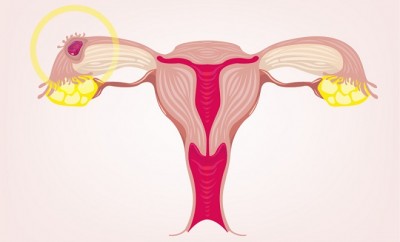When does Implantation Occur in Pregnancy and Women Opting for IVF
When does implantation occur is a basic question that every woman trying to get pregnant asks herself. Implantation is a process in which fertilised egg attaches itself to the uterus wall. This process occurs at the beginning of a pregnancy. In this process, once the egg has been fertilised by sperm, it moves through the fallopian tubes and reaches the uterus. Implantation may occur after just a few hours or days after fertilisation.
When you’re trying to conceive, the waiting period that comes after ovulation can be quite frustrating and annoying. As implantation occurs and your pregnancy begins to progress, you may have to wait several weeks. During this period, the fetus begins to develop and grow. Within this small window, a fertilised egg implants itself within the uterine lining.
Can a woman really know when implantation is supposed to occur? The answer to this question is a simple Yes. Some signs and symptoms can help a woman know when implantation has occurred in her uterus. In order to notice these signs, you need to observe your body carefully during the “waiting” period.
When does Implantation Occur in Pregnancy
Being aware of all the signs and symptoms of implantation will let you know when you’ve conceived. Some of these signs and symptoms include :
Light Spotting & Bleeding – When implantation occurs on your endometrial or uterus lining, you may experience light spotting or bleeding. Usually, this bleeding is called implantation bleeding. It happens around 7-10 days after ovulation. This is around the same time when you might be expecting your menstrual period.
With implantation bleeding, some vaginal spots may be clearly visible. Usually, these spots are brown or pink in color. They don’t resemble the normal blood flow of menstruation. About one-third women experience light spotting or bleeding during implantation bleeding.
Basal Body Temperature Shift – This is another indication of implantation. In fact, a temperature shift indicates early implantation. Some women notice an increase in body temperature right after ovulation.
The primary reason for this increase is the production of progesterone after implantation in your embryo. In case the embryo fails to burrow itself around the usual cycle, progesterone levels will fall down quickly. This will result in a drop in your body temperature on the day of menstruation.
Mild Cramping – Cramping experience after implantation is similar to the one you experience during your menstrual periods. However, these cramps may be accompanied by light spotting and bleeding explained above. The cramps will be mild and won’t cause any major problems.
Missed Menstrual Period – This is one of the most obvious signs of implantation. When you do not conceive every month, your uterus lining sheds. This is the reason you experience menstrual bleeding. However, once you’ve conceived or implantation occurs, the fertilised egg requires your uterus lining.
As a result, you stop getting monthly cycles. In case you’ve missed a menstrual period, it will be better to take the home pregnancy test to be sure. This is because you may also miss a menstrual period because of other factors like hormonal disorder, stress and imbalanced diet.
Fatigue – When a fertilised egg implants itself on your uterus lining, there are certain hormonal changes in your body. These changes are necessary to feed the embryo so it develops and grows. If you are unable to meet this increased demand for food, you may feel tired and lethargic. In fact, you may feel weak even after a full night’s sleep.
In case you are experiencing any signs or symptoms mentioned above, it indicates implantation. You need to get a basic home pregnancy test to confirm your suspicions and the little bundle of joy coming your way.
When does Implantation Occur in Women Opting for IVF
IVF or In Vitro Fertilisation is the process in which the egg is fertilised by the sperm, outside your body. This technique is recommended to women who are unable to conceive despite multiple efforts for over one year. The five different stages of In Vitro Fertilisation include :
● Ovarian Stimulation
● Egg Retrieval
● Fertilisation
● Culture & Selection of Embryo
● Embryo Transfer
When we talk about this technique, the stage post embryo transfer is crucial for confirming the viability of In Vitro Fertilisation. Usually, the egg will be implanted between 6 to 12 days of egg retrieval. After five days of embryo transfer, the egg reaches blastocyst stage. For accuracy, you need to county the day of retrieval as day 0.
How Effective is Implantation Contraceptive?
According to studies, an implantation contraceptive is around 99% effective. The best part is that it does not interfere with sexual intercourse in any way. The process of inserting an implantation contraception is basic and simple. It takes only five minutes for proper insertion. Most doctors use anaesthesia during this procedure and therefore, it is painless.
Implantation contraceptive is a reversible contraceptive measure. As soon as you stop using it, your fertility will return. Women who don’t use oestrogens or lactate can safely use implantation contraceptive. In fact, this contraceptive technique also protects you against pelvic infection. The mucus plug in your cervix will not let bacteria travel into your vagina. There are some women who worry about the device moving in their bodies. However, this is a rare occurrence. Usually, the device will stay at the site of the implant in your body.
Side Effects of Implantation Contraceptive
Implantation contraceptive can give some mild side effects like depression, headache, weight gain and dizziness. Some women may also experience vaginal bleeding and menstrual problems. Fluid retention and tenderness of breasts are also some common side effects. In case you suffer from a liver disease, ovarian cyst or heavy vaginal bleeding, you can not use implantation contraceptive.
Removal or insertion of the implantation contraceptive must always be carried out by a certified doctor. Otherwise, there are chances that you may develop an infection or pain. In case you don’t have vaginal bleeding, but don’t feel the implant, you should consult your doctor. This may be an infection because of some other treatment. A trained doctor will also be able to tell you when does implantation occur and other ways to identify it.













